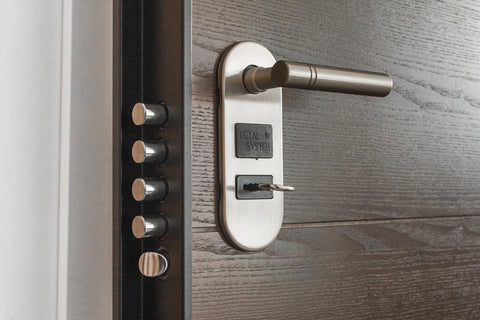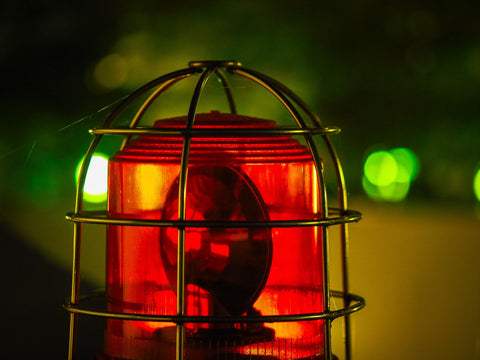
Home Automation With Alarm.com
08 Jul 2024
Qolsys IQ 4 - The Ultimate DIY Alarm System
11 Jun 2024
Alarm.com Video - Is it a good choice for you?
18 Jan 2024
31 Oct 2018
Do you have a security system installed in your house? If yes, then one of the most common problems you could be experiencing is false alarms. It’s both annoying and may cause panic in your immediate surroundings, which can be a little bit embarrassing to the neighbors and potentially to the security personnel that will check your house.
How do you stop this from happening? Read on as we discuss the ins and outs of false alarms in home security systems and its prevention.
 Photo courtesy of Pixabay via Pexels.com
Photo courtesy of Pixabay via Pexels.com
Whatever the cause may be, a beeping alarm should always alert you, your neighbors, and the police for the right reasons. False alarms happen when a security system is triggered by things other than burglars or unwanted guests.
There are many reasons that cause false alarms on home security systems, according to the Cleveland County’s sheriff department:
Avoiding these false alarm triggers from happening should be top priority for every homeowner so you don’t turn into the boy who cried wolf. False alarms can result in hefty fines in certain cities.
According to a 2002 report by the Center for Problem-Oriented Policing, police have responded to 36 million activations that equaled to an estimated annual cost of $1.6 billion USD. That’s a lot of money considering it’s just a false alarm. You wouldn’t want to be paying any of that just because you have a faulty system or because your cat just keeps crossing your alarm’s sensor.
 Photo courtesy of TBIT via Pixabay.com
Photo courtesy of TBIT via Pixabay.com
To prevent this from happening, let’s tackle the common reasons listed above and discuss false alarm prevention starting with faulty equipment. Perform regular maintenance on your house alarm. You can check on the wiring for possible cuts or nibbles from rodents or for signs of deterioration or tampering.
Do take a look at the power source and its terminals to see its condition. If it cannot produce the required energy or power, consider replacing it immediately. Any form of rust or leaks, on the other hand, should be taken seriously and the part replaced to make sure your alarm system is in good shape.
Aside from these, you’ll also have to check your windows and doors if they’re loose. Some alarms or motion detectors could pick-up the slam of a door or the creak of a window, even its movements.
Speaking of movements, pets, rodents, and insects could trigger your security system. Make sure your alarms are placed where your pets can’t be detected or use pet immune sensors (believe it or not, there’s a thing like that). In case you have a rodent or insect problem, it would be best to call in pest control as soon as possible. Alternatively, you can even spray insect repellant or put mouse traps around the alarm sensor.
Meanwhile, homeowners should always remember their codes so that they can disarm the alarm when needed. Inform expected visitors to avoid areas where your security system is set to avoid false alarms. You can also brief a trusted neighbor about your security alarm to help you out if there’s nobody in the house.
If you have an alarm monitoring service, you can also require a two-step verification from them. This will significantly reduce the chances of a false alarm as you and your provider will be able to authenticate the threat before calling the authorities to check on your house.
 Photo courtesy of Michael Morse via Pexels.com
Photo courtesy of Michael Morse via Pexels.com
False alarms, like we have said earlier, may cause panic in your household and in your community. Sadly, these things do happen. In the event a false alarm happens, here are some tips on how to handle it like a pro.
Don’t panic – This is the number one rule in events like these. Panicking will only cause chaos in your household. Stay calm and confirm if it’s a false alarm or not. If it’s the former, quickly think of how you can diffuse the situation.
Disarm the alarm – You’ll have to disarm the alarm as quickly and calmly as possible. Always remember your code. Let your family members or whoever else resides in your house know the code so that they can turn off the alarm if you’re not around.
Make a call – For those with an alarm monitoring provider, you should call them right after you turn off the alarm. Let them know that it was a false alarm so that – in case they’ve already called the cops – they can cancel the dispatch as soon as possible.
Brief the people around you – Inform the people in your household and your neighbors that it was a false alarm so that they don’t have to be on guard or call the cops. You might also want to issue an apology for the disturbance.
Perform a systems check – if you don’t have a visual or audio verification on what triggered the alarm, you need to perform a systems check just to be sure that it was indeed a false alarm.
Having an alarm in your house is imperative, especially if you live in areas where crime rate or vehicle and foot traffic are high. You never know when criminals will strike so it’s always important to make sure that your home security system works very well. It’s not only your appliances and cash that are at stake here, your and your loved ones’ safety as well.
08 Jul 2024
11 Jun 2024
18 Jan 2024